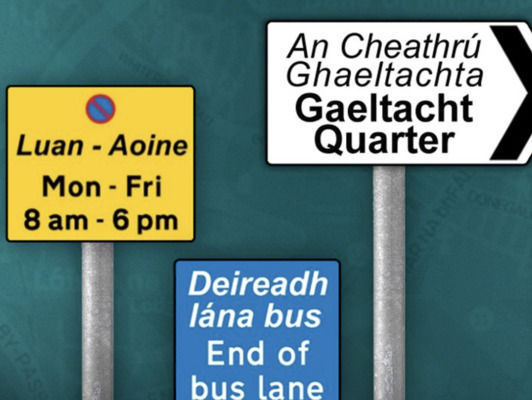WITH the Good Friday Agreement in 1998 came the release of all political prisoners and a promise from the Governments that they would recognise the “importance of measures to facilitate the reintegration of prisoners into the community by providing support”.
However 25 years later despite their key role in cementing the peace, the republican ex-prisoner community was never offered any significant support from the governments.
Instead, to this day they and their families continue to be subjected to severe discrimination and inequality.
When reflecting on the Good Friday Agreement it should always be remembered that the vast majority of the republican community including the prisoners and the wider activist base loyally supported it.
Most believed the Agreement was an honourable compromise that if allowed to flourish could bring armed conflict to an end once and for all and provide a new, consensual, peaceful way forward towards a better, more inclusive, equal and dignified society.
However, one of the excuses used to justify the continuing mistreatment of republican ex-prisoners is the supposed sensitivity to the needs of victims. Indeed when it comes to the mainstream media narrative about victims and legacy we will be reminded time and time again about the actions of republicans during the conflict.
Sinn Féin MP @johnfinucane tells an IRA commemoration that everyone has "the right to remember, and the right to commemorate". https://t.co/4dpJ51uSKP
— BBC News NI (@BBCNewsNI) June 11, 2023
It is without doubt the dominant focus of most media programmes on the subject. Yet in all of this, the root causes and motivations of conflict rarely feature and are conveniently ignored or obscured. The terms British colonialism, oppression, dispossession, plantation, Protestant ascendancy and partition rarely form any significant part of the debate. Instead the general discussion will be framed within a narrative that talks about wrongdoers (principally the IRA) inflicting violence on innocent people. The armed forces of the state were just there to keep the peace and uphold the law. Unionists will nod in agreement.
But what 'law' is it that the media and unionists refer to? Is it the same law that was used over the generations to conquer, kill, colonise, subjugate, dispossess, and starve Ireland’s people, plunder their resources, partition their country and underpin the violently corrupt Orange state for 50 years?
Is it the same law that would be employed to enforce blatant discrimination against northern Catholics, attack the civil rights movement, imprison and dehumanise thousands and provide legal cover for widespread state killing and brutality? The British have a long history of using the law as a weapon to subjugate people not only in Ireland but in the various colonies around the globe that they once controlled. Their ‘lawful’ colonial violence resulted in the death, destruction and maiming of millions. But let’s not talk about things like that. Let’s not criticise the lawful forces of the British State.
The most recent media hullabaloo directed at John Finucane for daring to speak at a republican volunteer ceremony in South Armagh is but the latest example of this twisted approach. Fair play to John for dealing with matters in a sensitive and diplomatic manner. But we must remember that all of this has little to do with sensitivity to victims. Rather it is part and parcel of the same old worn out tactic that has been employed through the ages to criminalise the Irish liberation struggle and indeed similar anti-colonial struggles worldwide. It was a tactic that was tried by the British during the most recent phase of our conflict but which was broken by the heroism of Bobby Sands and his brave comrades who rather than be criminalised sacrificed their lives in the hell hole that was the H-Blocks.
Dear everyone,
— Squinter (@squinteratn) June 11, 2023
If you can explain to me why John Finucane speaking at the main Belfast commemoration just weeks ago provoked a massive shrug of indifference I'd be genuinely grateful.
Ta. pic.twitter.com/qVwqdpc0aY
The excellent Chris Donnelly pointed out to Stephen Nolan recently after Stephen had reminded everyone yet again about the atrocities of the IRA that perhaps when we get to Remembrance Sunday the British public might also be reminded by media programmes such as the Nolan Show about the atrocities committed by their armed forces.
I would add another suggestion to the one posed by Chris Donnelly. As we approach the annual ‘Orange Fest’, which doubtless will be widely televised, perhaps the media could ask those celebrating to remember those that were colonised and enslaved and to be a wee bit more sensitive and respectful.
As they burn their fires, beat their drums and strut their stuff in celebration of King William of Orange maybe they could spare a thought for the 187,000 people ripped from their homes in Africa to be transported to the Americas as slaves by the Coulston Company. King William had major shares in Edward Coulston’s Royal African Company, and made a fortune from the horrific, barbarous and murderous treatment of these poor people.
Maybe if gestures like this were made then we could all start to get a bit more hopeful about the chances of ending division and creating greater peace, love and understanding.
Paul O’Neill,
Republican Ex-Prisoner
Do you have something to say on this issue? If so, submit a letter for publication to Conor McParland at c.mcparland@belfastmedia.com or write to Editor Anthony Neeson at Andersonstown News/North Belfast News, Teach Basil, 2 Hannahstown Hill, Belfast BT17 0LT








